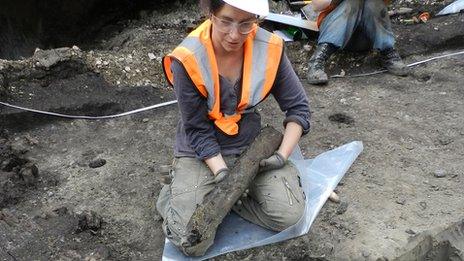Bronze Age trackway unearthed on Cleethorpes beach
- Published
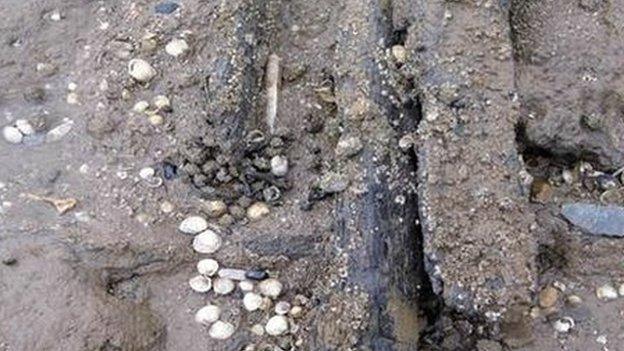
The trackway would have been used to cross boggy ground
A prehistoric trackway that could be more than 4,000 years old has been discovered on a beach in Cleethorpes.
The wooden track would have been used to cross a boggy landscape and is believed to be from the early Bronze Age, said archaeologists.
It was found during a coastal survey for a project into threatened archaeological sites.
Andy Sherman, from the survey, said: "It's fascinating to think people in the past were walking along the wood."
About 5m of wood have been exposed by the tide.
Mr Sherman said: "It is really difficult to say just how much more is preserved, it's all down to the survival quality of the wood within a peat layer."
It was hoped a wood sample could be taken to date the trackway more precisely, he added.

Bronze Age
In about 2,000 BC, travellers from Europe began arriving in Britain with tools and weapons made from a previously unknown material - bronze
True bronze is a combination of 10% tin and 90% copper - both of which could be found in Britain
It meant these tools and weapons could be produced and traded across the island
The Bronze Age lasted about 1,500 years and also saw the introduction of textile production and more widespread agriculture
Evidence of Bronze Age wooden trackways have been found in numerous locations, particularly in wetland locations.
Source: BBC History

The peat's low oxygen level has protected the ancient wood from completely rotting away.
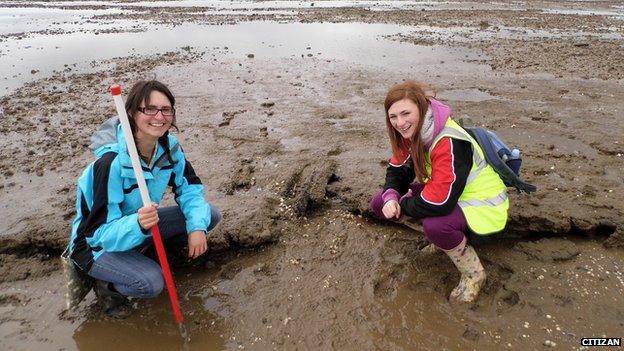
Waves have eroded the ancient wood
The Coastal and Intertidal Zone Archaeological Network (CITiZAN) survey is to record coastal and tidal sites threatened by erosion by wind and waves.
Volunteers are to be trained to record and monitor such sites.
- Published23 July 2015
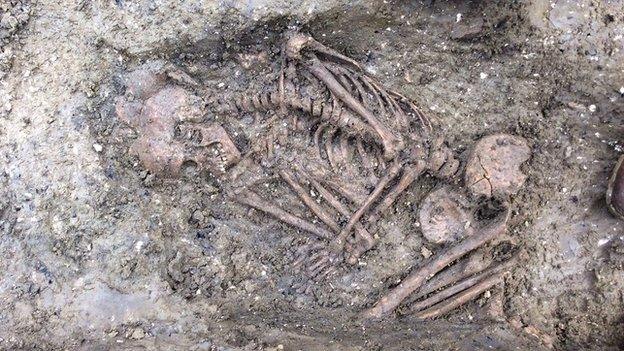
- Published14 July 2015
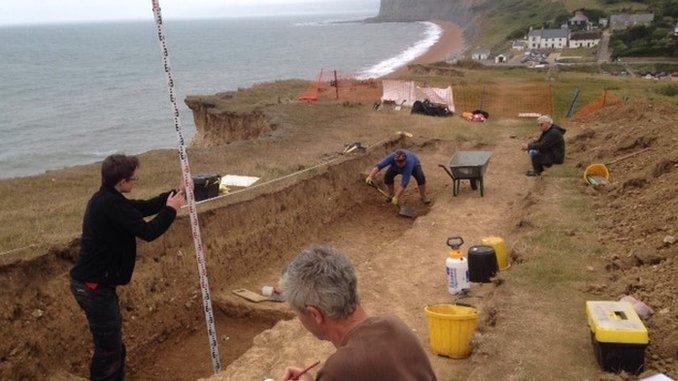
- Published5 October 2012
